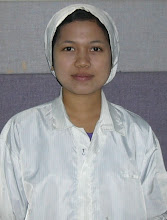Yeast infection is a result of overgrowth of microscopic fungi or yeast in the body. It brings discomfort and damage to its prey's health. This can be treated, though, using over-the-counter medications. However, if the infection continued for more than a week or if the infected person has a weak immune system, seeking a doctor's advice is recommended.
Types and their Cure
Thrush
This affects mucosal surfaces of the mouth. It is important to maintain a good oral hygiene particularly when you have thrush. Nystatin, an antifungal agent, is to be swished around the mouth before swallowing it. Anything that adult and child put into their mouth, including dentures, must be cleaned thoroughly. Mothers who are breastfeeding should also undergo check up to see to it that they are not infected with Candida. Other treatment options, though, are available to all except for little children or infants. These include pills and antifungal lozenges.
Skin and Diaper Rash
This type vividly involves infants most of the time. To treat this, Clotrimazole lotions and creams and Ketoconazole antifungal creams are two of the cures that need prescriptions. For the rare cases of Paronychia, it would be helpful to avoid moisture and to take oral Itraconazole or Fluconazole. Affected areas must be kept dry and clean by changing diapers regularly.
Vagina Women can cure their vaginal infection through nonprescription and prescription drugs. Medications that do not need prescription include suppositories andcreams. Fluconazole, on the other hand, requires a doctor's prescription.
Why then are Men Affected by Yeast Infection?
Yeast infection in men is commonly caused by alcohol, antibiotics, wheat, peanuts, corn, barley, weak immune system, and sexual intercourse. More often, they are affected by their female partner who already has a vaginal infection. This is why a man is also advised to take the yeast infection medication when the female partner is found to be infected.








